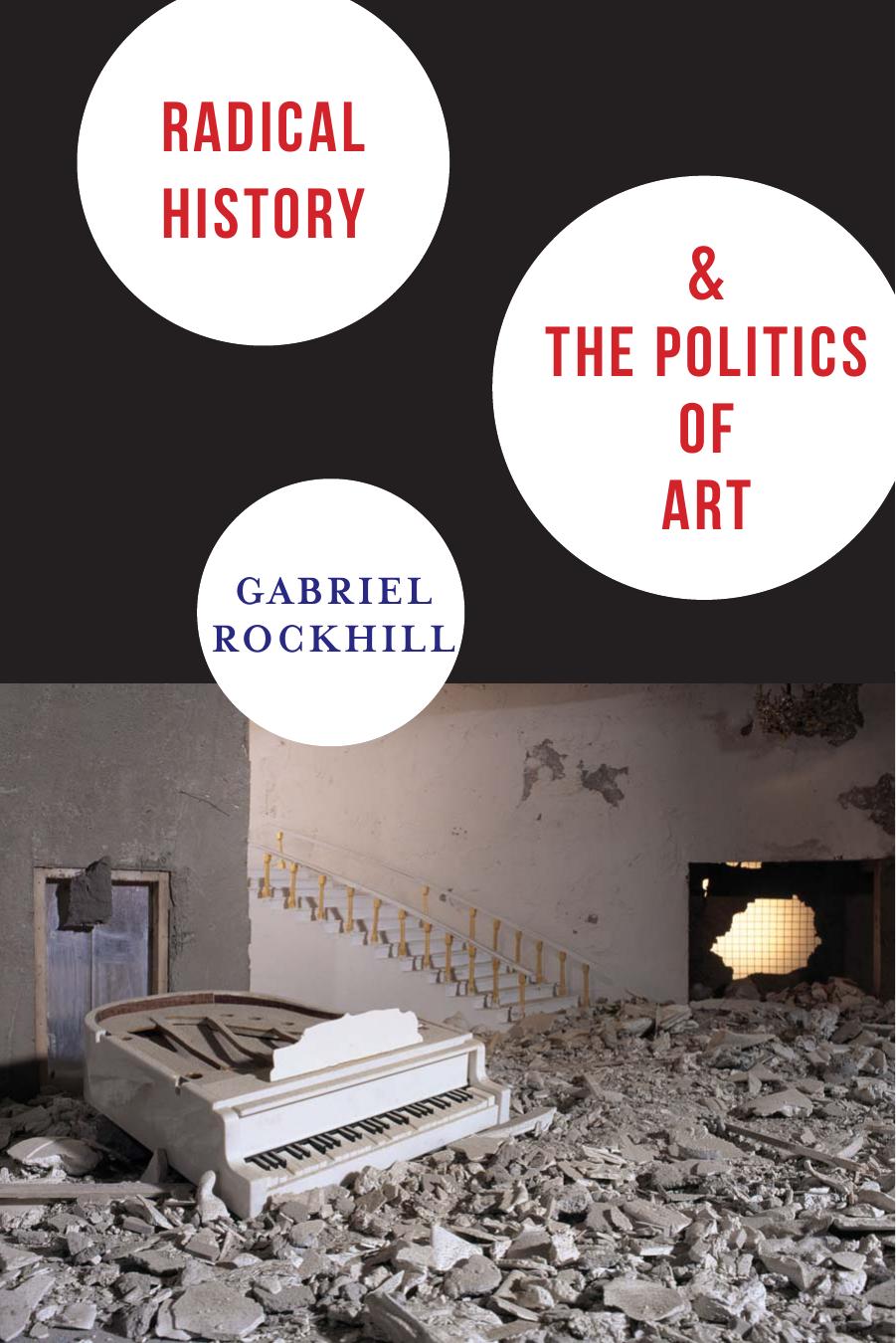Radical History and the Politics of Art by Gabriel Rockhill

Author:Gabriel Rockhill
Language: eng
Format: epub, pdf
Tags: PHI001000, Philosophy/Aesthetics, PHI019000, Philosophy/Political
Publisher: Columbia University Press
Published: 2014-07-14T16:00:00+00:00
AESTHETIC GENEALOGY
In a revealing interview, Rancière candidly admits his indebtedness to Michel Foucault: “The genealogy of the concept of literature that I have attempted in La Parole muette [Mute Speech], or in my current work on the systems of art, could be expressed in terms close to Foucault’s concept of episteme.”11 However, he is quick to add that he is not concerned with establishing the limits of thought for a particular era and that he is “much more sensitive to crossings-over, repetitions, or anachronisms in historical experience.”12 The question of historical methodology, moreover, is ultimately tied for Rancière to the polemical role played by equality, a concept that has little theoretical pertinence for Foucault. Given that one of the common reference points that they both share is the set of methodological changes introduced by the Annales School, this may serve as a useful starting point for examining the explanatory power of Foucault’s epistemes and Rancière’s artistic regimes.
Elucidating Foucault’s relationship to his immediate predecessors in historiography would require a long and detailed study extending well beyond the scope of the present chapter. It is, however, worth emphasizing that the choice between historical continuity and discontinuity is misleading. It is a mistake to affirm that Foucault either entirely accepted or categorically rejected the methodology of the Annales School. The most obvious reason for this is that the Annales School itself has not consistently maintained a single doctrine accepted by all of its members at every stage of its long history. The early endeavors by Marc Bloc and Lucien Febvre to overcome historical positivism and the limits of political history while avoiding the pitfalls of abstract German-style historiography have undergone numerous metamorphoses and given birth to diverse trajectories in the historical sciences. Furthermore, the dominant personalities in the second generation of the Annales School made important decisions regarding their methodological heritage. Economics and demography became privileged tools of analysis, totalizing geohistory tended to replace the chronicle of human lives, and the primary focal point became the classical age. Without adding the further complication that Foucault himself played a major role in the development of the third generation of the Annales School, let it suffice to conclude that the notion of a historical “school” can only be taken as pragmatic shorthand to refer to a long and intricate history.
Moreover, Foucault’s own intellectual jabs and feints make it difficult to isolate one fixed historical method, or even three methodological formulas that would correspond to each of the supposed periods of his corpus (archeology, genealogy, problematization). Whether he is referring to his historical studies as experiments, calling his delimitations provisory, qualifying his historical claims, refining his notion of discontinuity, referring to himself as a journalist, or reformulating the basic stakes of his entire project in terms of his present concerns, Foucault’s critical reflection on his own theoretical enterprise often leaves his reader with the impression that this is in fact the only constant in his work. To take one example among many others, in the introduction
Download
Radical History and the Politics of Art by Gabriel Rockhill.pdf
This site does not store any files on its server. We only index and link to content provided by other sites. Please contact the content providers to delete copyright contents if any and email us, we'll remove relevant links or contents immediately.
| Deconstruction | Existentialism |
| Humanism | Phenomenology |
| Pragmatism | Rationalism |
| Structuralism | Transcendentalism |
| Utilitarianism |
The remains of the day by Kazuo Ishiguro(8999)
Tools of Titans by Timothy Ferriss(8394)
Giovanni's Room by James Baldwin(7346)
The Black Swan by Nassim Nicholas Taleb(7129)
Inner Engineering: A Yogi's Guide to Joy by Sadhguru(6794)
The Way of Zen by Alan W. Watts(6614)
The Power of Now: A Guide to Spiritual Enlightenment by Eckhart Tolle(5781)
Asking the Right Questions: A Guide to Critical Thinking by M. Neil Browne & Stuart M. Keeley(5775)
The Six Wives Of Henry VIII (WOMEN IN HISTORY) by Fraser Antonia(5515)
Astrophysics for People in a Hurry by Neil DeGrasse Tyson(5189)
Housekeeping by Marilynne Robinson(4447)
12 Rules for Life by Jordan B. Peterson(4304)
Ikigai by Héctor García & Francesc Miralles(4274)
Double Down (Diary of a Wimpy Kid Book 11) by Jeff Kinney(4271)
The Ethical Slut by Janet W. Hardy(4251)
Skin in the Game by Nassim Nicholas Taleb(4248)
The Art of Happiness by The Dalai Lama(4130)
Skin in the Game: Hidden Asymmetries in Daily Life by Nassim Nicholas Taleb(4006)
Walking by Henry David Thoreau(3962)
